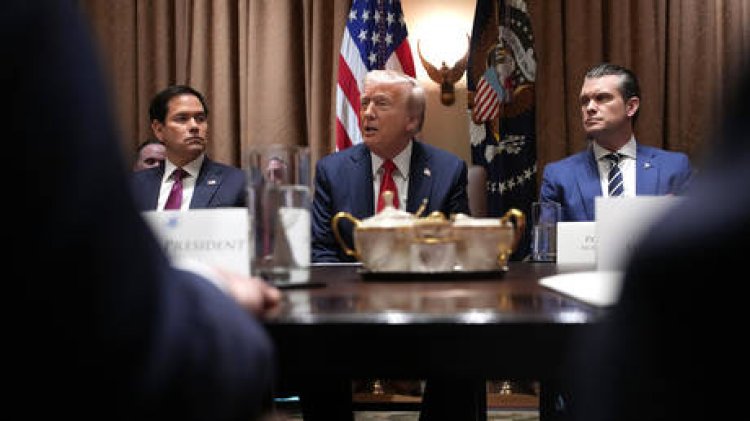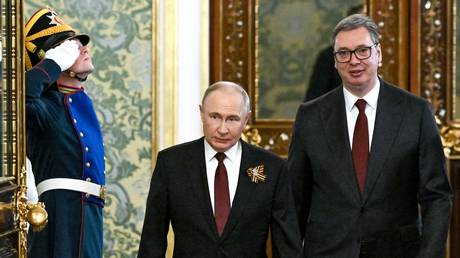Europe seeks 'direct line' with Trump, according to NYT
European officials are working to establish a “direct line” of communication with U.S. President Donald Trump, uncertain about whether his team is capable of making significant decisions or willing to cooperate, according to a report by the...

Based on insights from various unnamed European officials, the piece characterizes the U.S. president as “the ultimate decision maker” who is often unpredictable, prompting European leaders to prioritize having direct discussions with him.
High-level negotiators from European NATO countries have found traditional diplomatic avenues—like the State Department and embassies—less effective, the report notes. Compounding the confusion is the fact that the most reliable contacts on the U.S. side are not career diplomats, but rather trusted special advisers and envoys, including figures like Elon Musk and Steve Witkoff, as stated in the article.
European officials conveyed to the NYT that their American counterparts seem primarily focused on executing the president’s directives, showing little regard for the viewpoints of U.S. allies.
The Trump administration is “not terribly interested in what the Europeans have to say,” a source reported to the NYT, adding, “It’s all about unilateralism and they don’t consult much. After all, if they don’t consider us allies to that extent, why would they?”
While senior officials in Trump’s administration have engaged in “cordial” discussions with their European peers on various matters, the article points out that “it is never clear to allies” whether these officials have any “real power over foreign policy or trade.”
“Everyone in D.C. says you have to talk to Trump directly,” one senior European official told the NYT.
However, securing such direct communication has proven challenging even for the highest-ranking EU officials, as Trump “despises the collective power of the European Union and sees many NATO allies as freeloaders,” the paper indicates, revealing that leaders like European Commission President Ursula von der Leyen are having difficulty arranging time with Trump.
This breakdown in communication occurs amid fragile U.S.-EU relations, strained by the U.S. decision to impose tariffs on the bloc and its efforts to ensure European NATO members contribute more to their own defense. Additionally, diverging views on the Ukraine conflict have surfaced, with Trump engaging in active diplomacy with Russia to resolve the situation, while the EU remains committed to supporting Ukraine “for as long as it takes.”
Ramin Sohrabi for TROIB News












